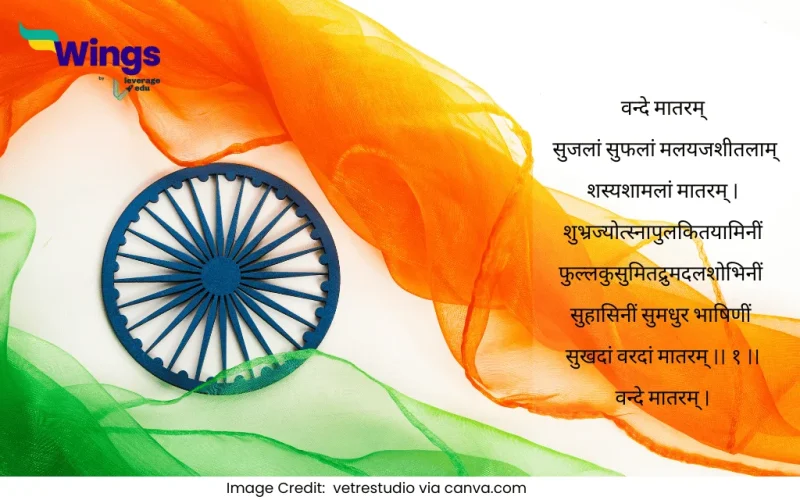‘Vande Mataram’ was composed by Bankim Chandra Chatterjee (also spelt Chattopadhyay). It is a cornerstone of India’s independence movement, is more than just a piece of music. It holds deep patriotic significance and symbolises the spirit of the freedom struggle. But who was the visionary behind this iconic song? Let’s uncover the story behind its composition, its creator, and its legacy.
Who Composed ‘Vande Mataram’?
The song ‘Vande Mataram’ was composed by Bankim Chandra Chatterjee (also spelt Chattopadhyay), a prominent Bengali writer, poet, and novelist. He wrote this song in 1875, and it was later included in his novel ‘Anandamath’, published in 1882.
The song was initially written in Sanskrit and Bengali, blending the two languages to create a powerful piece that resonates with India’s cultural heritage. The phrase ‘Vande Mataram’, meaning “I bow to thee, Mother,” is a tribute to the motherland.
Significance of the Song
- Patriotic Anthem: ‘Vande Mataram’ became a rallying cry during India’s struggle for independence. It inspired millions to unite and fight for the nation’s freedom.
- Cultural Symbol: The song embodies India’s natural beauty and cultural richness, portraying the country as a divine mother figure.
- National Recognition: In 1950, the first two stanzas of ‘Vande Mataram’ were adopted as the National Song of India, distinct from the National Anthem, ‘Jana Gana Mana.’
Musical Composition
The music for ‘Vande Mataram’ was composed by Rabindranath Tagore, the Nobel Laureate and another legendary figure in Indian history. His composition brought the song to life and further solidified its place in the hearts of Indians. Over the years, several other musicians have reinterpreted and performed the song, adding to its legacy.
Legacy of Bankim Chandra Chatterjee
Bankim Chandra Chatterjee’s contributions to Indian literature and nationalism are unparalleled. His novel ‘Anandamath’ not only gave India its national song but also ignited a sense of unity and pride among its citizens.
‘Vande Mataram,’ composed by Bankim Chandra Chatterjee, is more than just a song; it is a symbol of India’s indomitable spirit and rich heritage. Its powerful words and melody continue to evoke a deep sense of patriotism, reminding every Indian of the sacrifices made for the nation’s freedom.
Common Doubts


 One app for all your study abroad needs
One app for all your study abroad needs











 60,000+ students trusted us with their dreams. Take the first step today!
60,000+ students trusted us with their dreams. Take the first step today!